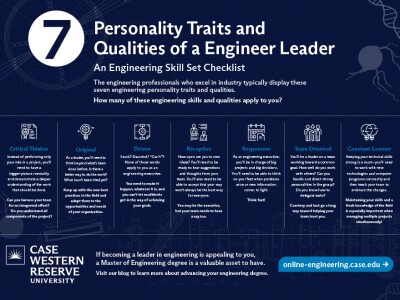Online Engineering Blog
By sharpening your engineering skill set, you can put yourself in a unique position to address some pervasive everyday problems. Which would you like to take on? For a little inspiration, take a look at some real-world everyday challenges, big and small, that have been alleviated by some rather innovative engineering solutions.
Engineers are critical to the advancement of society. They build the structures we inhabit, they create technologies that save lives and enable more efficient operations, they design convenient products and so much more.
Mechanical engineers are problem solvers who use technical expertise to create novel solutions that improve our lives. This broad statement, while true, is usually all that people really understand about the role of a mechanical engineer. Mechanical engineering is actually a specialization with considerably diverse career applications in a range of industries and roles.
When you think of St. Patrick’s Day, you probably think of crowds of jovial people wearing green, but did you know that St. Patrick is also considered the patron saint of engineers?
Engineering careers are some of the most fulfilling around, both in terms of the intellectual stimulation they offer at work and the financial compensation they provide. Engineers are typically drawn to the profession by their affinity for data and analytics, complex problem-solving, and organized tasks.
Becoming a biomedical engineer typically requires a graduate degree in bioengineering, biomedical engineering, or another closely related discipline. As you consider your educational path, there are some important things to look for in a biomedical engineering degree program.
Our world runs on the work of engineers. Responsible for turning scientific ideas and discoveries into usable commodities, engineers shape our existence in every way, from the cities and structures we live in and the foods we eat to medical breakthroughs that save countless lives.
If you’re thinking about getting a degree in engineering, then you need to check out this list of potential specialized careers that you can pursue after graduation.
Given the growing trends of STEM (Science, Technology, Engineering and Mathematics) companies facing media scrutiny and backlash over their treatment of female employees, most these days can readily agree: It is hard to be a woman in the often male-dominated STEM industries.
With expertise spanning physiology, biology, healthcare and health informatics, mechanics, and engineering, biomedical engineers can combine their diverse skills to create solutions to continuing worldwide health issues, helping to change how patients are treated and lowering the cost of care.









